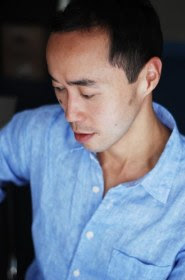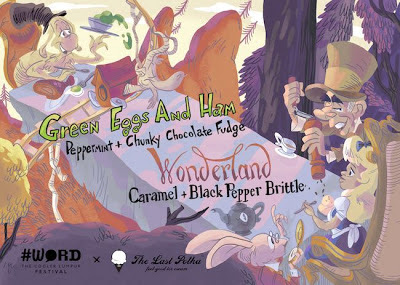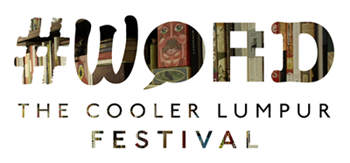If you must know, some of the other books in the longlist include We Need New Names by NoViolet Bulawayo, The Testament of Mary by Colm Tóibín (who's been shortlisted for the Booker twice), Donal Ryan's début and much-rejected novel The Spinning Heart and the unreleased titles (at the time of naming) Unexploded by Alison MacLeod, Almost English by Charlotte Mendelson, and The Lowland by Jhumpa Lahiri. Check out the whole line-up here.
...Okay, there were other happenings last week in the book world. Here's a round-up of some of the responses to Fox News' "most embarrassing interview" with religious scholar Reza Aslan, author of Zealot: The Life and Times of Jesus of Nazareth. Seems they can't wrap their heads around the fact that a Muslim penned a book about Jesus, and the worst of them have predictably reacted badly. Already expectations of skyrocketing sales for the book (and the one-star tsunami at Amazon) are high.
Commentators in that Atlantic Wire report had nothing but praise for Aslan's "superhuman" patience in the face of an interviewer apparently offended that a Muslim would write anything on the founder of Christianity and is hell-bent on discrediting the scholar and the book, based solely on the former's religion.
In spite of Aslan's credentials and that he says writing books on Jesus is also part of his job. "I am a professor of religion, including the New Testament. That's what I do for a living, actually."
"I don’t remember what I wrote ... and I don’t remember anything about the book itself except that I felt completely unrepentant about not recommending it. ... as far as I was concerned the only reason they didn’t go for this one was that it wasn’t good enough. 'Good' for me at that time meant tight and clever and stylistically showy. The idea that failing to see the merit of 'The Diary of a Good Neighbour' might have been a reflection of my own limitations rather than the book’s had no resonance for me at all. My mechanism of judgment was as ruthless as it was narrow."
After Robert Galbraith's unmasking, the guy who dismissed Doris Lessing's pseudonymously written novel reflects on his decision.
Elsewhere:
- There's a library in an Orang Asli village in Port Dickson? And it seems this library, located at Kampung Orang Asli Sunggala, needs books.
- "I write street lit because that’s the life I lived". Deborah Cardona a.k.a "Sexy" (the hell?), and a gritty, ignored genre.
- When a blog is a brand, "going dark" isn't an option for the blogger. But sometimes a hiatus - or a complete disconnection - might be necessary.
- A first-time author asks why is the media a) such busybodies, b) not paying her for 'promotional' pieces she wrote, and c) so obsessed with "how to write" when they should be asking "how to read".
- With the Penguin Random House merger complete, this behemoth of a publishing company is projected to corner about a quarter of the world's book publishing sector. The Atlantic and the Guardian are voicing concerns involving a scenario where giants battle for dominance of a less diverse publishing ecosystem, leaving smaller players to scavenge among the ruins. "Go big or go extinct" seems to be the game now.
- American publishers are pushing for the EPUB3 standard for e-books. Why?
- From GalleyCat: how booksellers can fight the scourge of showrooming, and, from the guy who introduced The 100 Year Old Man Who Climbed Out The Window And Disappeared to the world, comes The Illiterate Who Could Count. I'm wondering, how long before we get The Comedian Who Isn't Funny or The Mountaineer Who's Afraid of Heights?
- A Q&A with Tim Hely Hutchinson, group chief executive of Hachette UK, in conjunction with the opening of Hachette's sales office in Hing Kong. While he talks about change, the Asian market, and other things, Hachette New Zealand stops publishing new stuff.
- So research suggests the scent of chocolate keeps people hanging around in bookstores for much longer. Will an Eau de Chocolat for bookstores promote patronage and sales?
- How Neil Gaiman was "like sushi", which "kind of works" now, according to Neil Gaiman.
- Deadliest Catch crab boat captain Johnathan Hillstrand pens children's books, one of which features... crabs.
- A long infographic to help you find out what kind of reader you are.
Categories:
Book Marks










